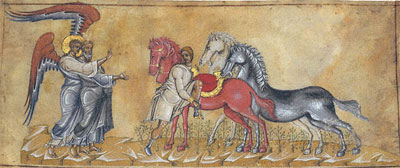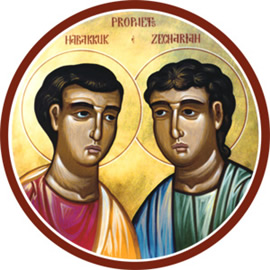From Our Archives
Debie Thomas, A Lighter Burden (2020); and Dan Clendenin, Failure-Tolerant Christians (2011).
For Sunday July 9, 2023
Lectionary Readings (Revised Common Lectionary, Year A)
Genesis 24:34–67 or Zechariah 9:9–12
Psalm 45:10–17, Song of Solomon 2:8–13, or Psalm 145:8–14
Romans 7:15–25
Matthew 11:16–19, 25–30
This Week's Essay
This week Americans will celebrate the birth of our country 247 years ago on our 4th of July "Independence Day." I'm always astonished to consider how very young our political experiment is compared to the arc of world history and to many other countries.
On July 2, 1776, the Second Continental Congress of the thirteen American colonies approved a resolution to declare independence from Great Britain. Henceforth, they would be a sovereign nation of thirteen "United States." Two days later, on July 4, the Congress approved the "Declaration of Independence" that explained their vote. In 1776, the population of the thirteen colonies was 2.5 million; today it is 337 million.
America's national holiday always makes me contemplate the complicated relationship between the sacred-eternal and the secular-temporal, between my pledges of allegiance to both the church and to the state, and between the different visions of the city of God and the city of man.
For Christians, caesar is not divine. We honor the state but we don't worship it. This was a deeply subversive idea in the early church, for in the robustly polytheistic Roman Empire "the deification of emperors was a fairly standard practice." Christians paid dearly for denying that claim with two centuries of persecution, for the Christian desacralization of the emperor was a political threat to the Roman state.1
It is Christianity that gave us the idea of a distinctly secular state, as opposed to theocracies like ancient Israel and modern Iran, or claims about the "divine right of kings" that is not accountable to any human authority. And if the state is secular and not sacred, if caesar is not divine, then it deserves our limited allegiance, yes, but also our loyal opposition rather than uncritical obedience.
Our global readership at Journey with Jesus reminds me that being Christian and being American are two different things. For our budget year that ended last week on June 30, we served readers in 205 countries and 14,227 cities. The Yale historian Jaroslav Pelikan once observed the paradox that there's never been a country where the gospel has been altogether impossible, and there's never been a country where the gospel has been entirely compatible.
Of course, it's good and natural to love your own country. I experienced this pull of patriotism when my family lived in Moscow from 1991 to 1995. We enjoyed so much about living in that great city, founded in 1147, but I also missed many things about America. There's truly no place like home.
The problem with patriotism is that it can lead to nationalism. And nationalism, as CS Lewis observed, believes that my nation is "markedly superior to all others."
 |
|
The vision of Zechariah, unknown Italian, Sicily, about 1300.
|
Lewis once encountered a person who espoused such noxious nationalism. He asked him, "doesn't every nation think of itself as the best?" The man responded in all seriousness, "Yes, but in England it is true."
Lewis concludes, "To be sure, this conviction had not made my friend (God rest his soul) a villain; only an extremely lovable old ass. It can however produce asses that kick and bite. On the lunatic fringe it may shade off into that popular Racialism which Christianity and science equally forbid."
For the nation Israel that was founded as a theocracy — the direct rule by God alone, the remarkable reading from Zechariah this week imagines a global rather than a merely national perspective. His political poetry speaks to us today 2,500 years after he wrote.
About fifty years after Babylon conquered Israel and deported them in 586 BCE, the military balance of power shifted. On October 13, 539 BC, Cyrus the Great of Persia conquered the Babylonian king Nabonidus in the Battle of Opis on the Tigris River, near modern Baghdad.
As a tolerant and enlightened ruler, Cyrus issued an edict in 538 BCE that permitted the subjugated Jews to return to their devastated home land. Thus began Israel's "post-exilic" period.
Repatriation to Israel was a brave choice, and not all the Jews returned. Economically-speaking, they were better off in pagan Babylon than in holy Jerusalem, for their capital city had been ransacked and was in ruins.
When Israel's present reality was bleak, the prophets envisioned a better future. What is human hope if not the expectation of a future? That's what Zechariah did for the repatriated Jews living in war-torn Jerusalem (Zechariah 9:9–10):
"Rejoice greatly, O Daughter of Zion!
Shout, daughter of Jerusalem!
See, your king comes to you,
righteous and having salvation,
gentle and riding on a donkey,
on a colt, the foal of a donkey.
I will take away the chariots of Ephraim
and the war-horses from Jerusalem,
and the battle bow will be broken.
He will proclaim peace to the nations.
His rule will extend from sea to sea
and from the River to the ends of the earth."
When you read his poetry carefully, and imagine yourself back in that time and place of a repatriated Jew trying to eke out a subsistence living in a devastated country, you see how Zechariah subverts our normal expectations. It's not what most Jews would have wanted to hear.
A king will rescue them, yes, but why these words about righteousness and salvation instead of revenge and retribution? Defeated nations demand retribution. A king riding on a colt? Such political parody must have struck Zechariah's original readers as cruel and crazy.
 |
|
Prophets Habakkuk & Zechariah, by contemporary Nicholas Papas.
|
Thank God for Zechariah's promises of peace, that all the enemy's military hardware will be removed from the streets of the capital city — chariots, war-horses, and battle bows. But peace to the enemy, peace to all nations, peace from sea to sea, and peace to "the ends of the earth?" Why such universal blessing when national survival was at stake?
Zechariah envisioned a far different future than the one the Jews back then understandably sought, given their humiliating circumstances, and certainly compared to the canons of conventional political wisdom.
The future that his poetry envisioned is characterized by national humility, not political hubris. It imagines a king who rides a young donkey rather than a regal stallion as symbolic and not oxymoronic.
The future kingdom is also peaceable, not provocational. God's kingdom is one of peace and not war: "I will take away the chariots from Ephraim and the war-horses from Jerusalem, and the battle-bow will be broken. He will proclaim peace to the nations." We should abhor war, not glorify it.
God's coming kingdom is also universal, extending to the ends of the earth, rather than ethnocentric or nationalistic. In Zechariah's political calculus, God's kingdom extends far beyond the boundaries of what we normally think of as a single geo-political state. No nation is exceptional before God, and no nation is excluded. "His rule will extend from sea to sea, and from the river [Euphrates] to the end of the earth."
According to our Christian story, God created the entire cosmos. In Genesis he promised to bless "all the families of the earth." In Revelation he gathers people from "every nation, tribe, people, and language." In a clever play on words in Ephesians, Paul says that God is the patera of every patria — the "father of every family."
He isn't the God of ancient Jews alone, or the God only of contemporary Americans. God is the father of "every family in heaven and on earth." Paul says in Romans 8 that God will redeem "the whole creation."
For Christians who believe that God loves all peoples and nations without exception or favoritism, and who wish every nation peace rather than war, the anniversary of the American Revolution invites us to deeper reflections beyond patriotic rhetoric. Zechariah's peace poetry challenges us to imitate his God, and to love all the world like he does.
Weekly Prayer
From Jane Wilson Joyce, Quilt Pieces (Gnomon Press, second printing, 2009).
The Liberty Bell in Philadelphia
is cracked. California is splitting
off. There is no East or West, no rhyme,
no reason to it. We are scattered.
Dear Lord, lest we all be somewhere
else, patch this work. Quilt us
together, feather-stitching piece
by piece our tag-ends of living,
our individual scraps of love.
[1] Mary Beard, "Divine Comedy: The Godlike Aspirations and All Too Human Last Moments of Roman Emperors," The New Yorker (July 3, 2023).
Dan Clendenin: dan@journeywithjesus.net
Image credits: (1) J. Paul Getty Museum and (2) Nicholas Papas.





